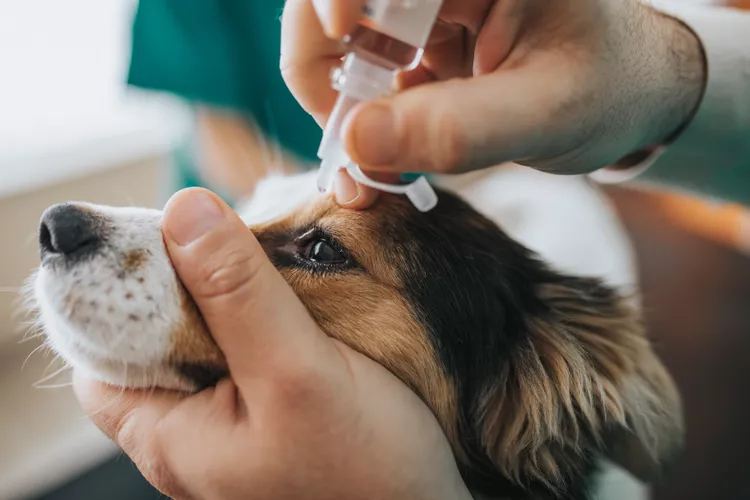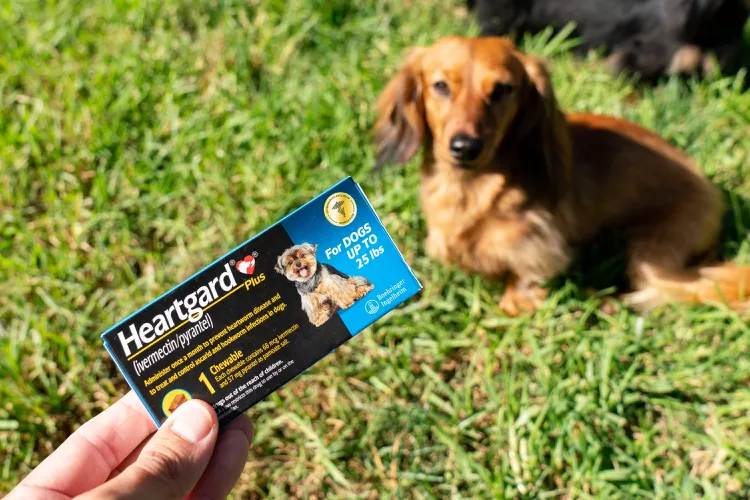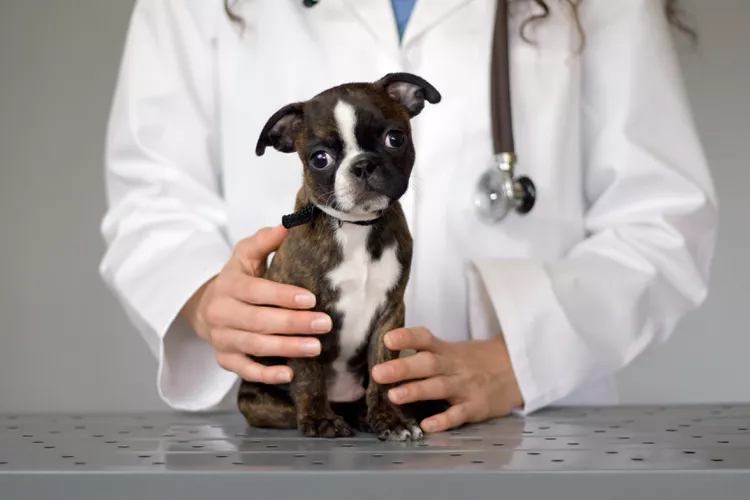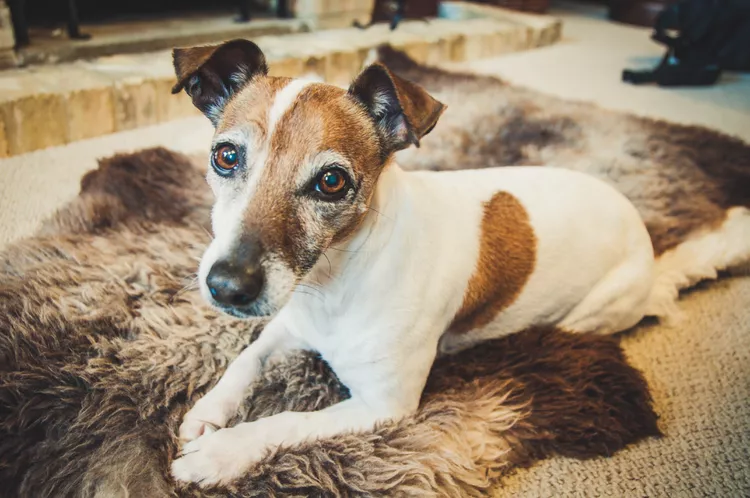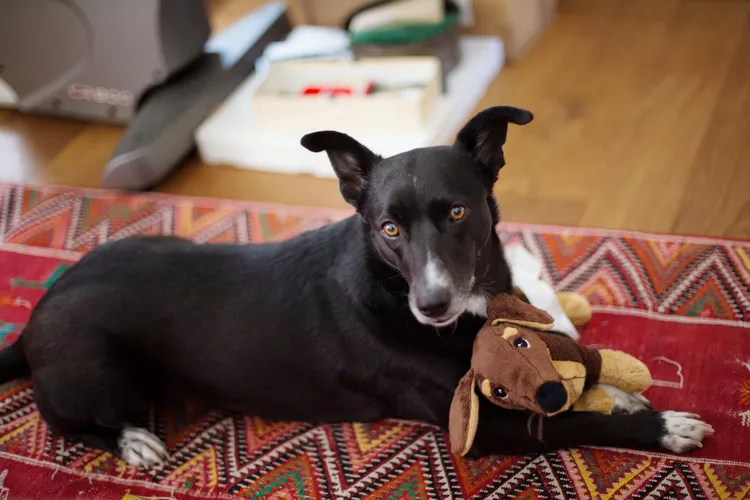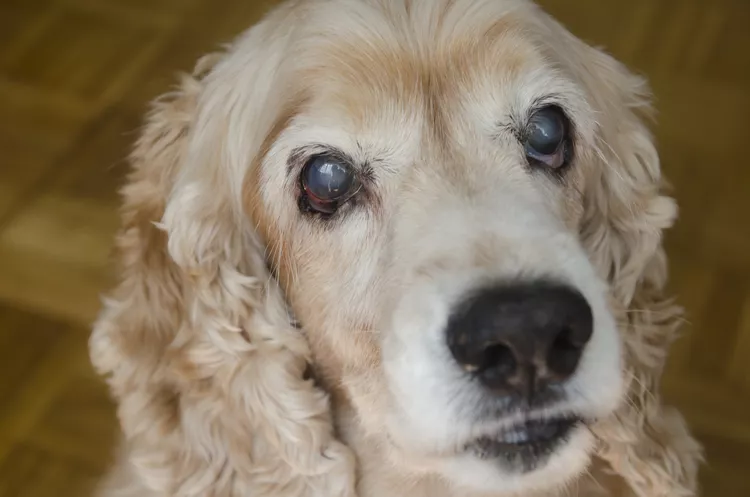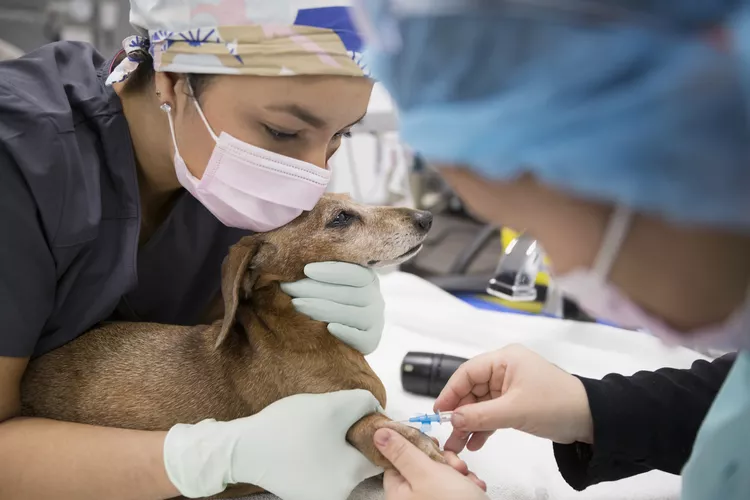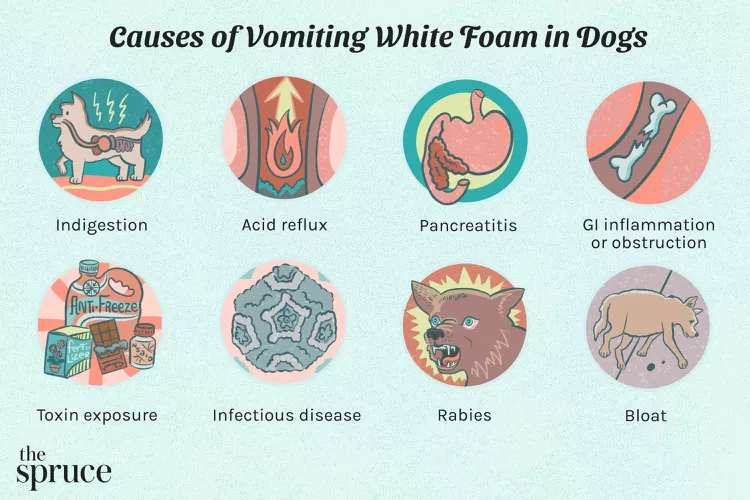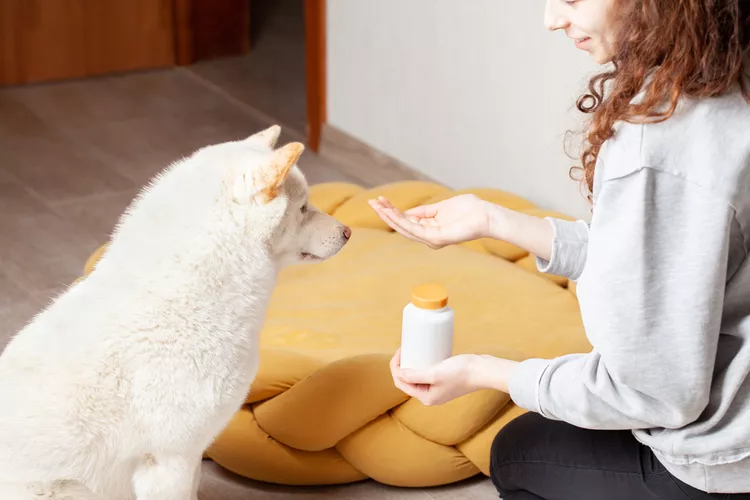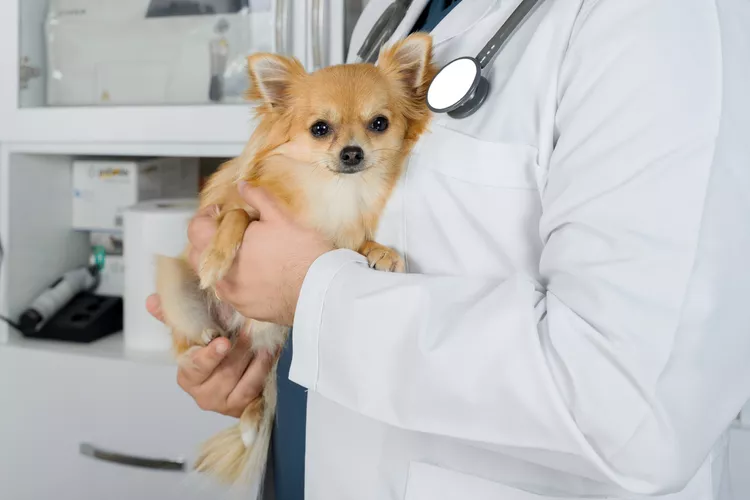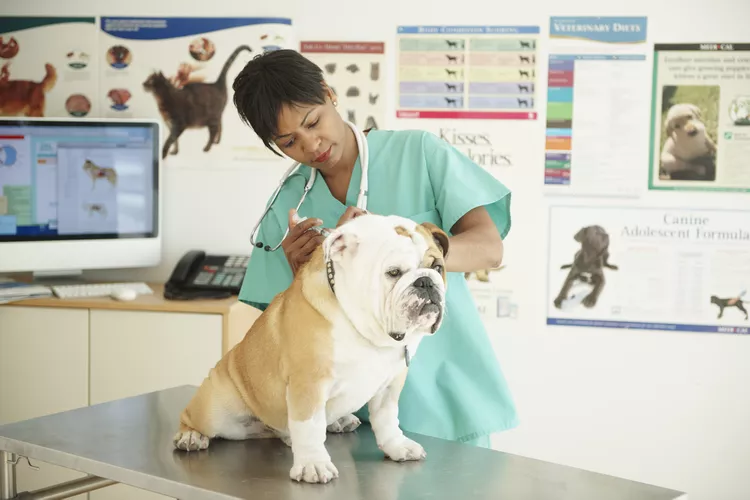Is Neosporin Safe for Dogs?
Neosporin is often used to treat minor cuts or skin infections in humans, but is it safe to use on dogs? Find out if Neosporin is safe for dogs. ...
Worms in Dog Poop: What to Do
Seeing worms in your dog's poop is not normal. Learn about worms and parasites in dogs. Find out what to do if your dog has worms in their stool. ...
Abscesses in Dogs
Abscesses are pockets of pus that develop when a wound becomes infected. Learn how to spot the signs and treat this painful condition in your dog. ...
Eye Drops For Dogs: Tips For Giving Your Dog Vital Medication
Eye drops for dogs can prove challenging if your dog doesn't like you touching her face. Here are some tips on how to safely administer dog eye drops. ...
Dry Eye in Dogs
Dry eye is an inflammatory eye condition due to a defect in a dog's tear glands. Learn the causes, treatment, and prevention. ...
How to Treat Allergic Reactions in Dogs
Dogs can have acute allergic reactions just like people. Learn about what to do if your dog is having one and how to prevent it. ...
Ivermectin for Dogs
Ivermectin is used in dogs to treat a variety of parasitic diseases. Learn about the uses, safety, side effects, and handling of ivermectin for dogs. ...
Disinfecting Your Home After Parvovirus in Dogs
Parvovirus is a highly contagious disease. Properly disinfecting your home is an important part of decreasing the spread of this virus. ...
Skin Tags on Dogs
Dogs can get skin tags, which are fleshy growths that can appear on a dog's body. Learn about the signs of skin tags in dogs and what you should do about them. ...
Why Do Dogs Pant?
Dogs pant for a number of reasons, including cooling, excitement, and play. But sometimes panting is a sign of a physical problem. Learn why dogs pant and what to do about it. Here’s how to tell if your dog’s panting is normal or a sign of a problem. ...
What to Do if Your Dog Is Throwing Up Yellow Bile
You're sure to be concerned if your dog is vomiting yellow bile. Learn why dogs throw up yellow bile and find out what you can do to help your dog. ...
Dog Heat Cycle: Length, Frequency, and Stages
The length of a dog's heat cycle varies between breeds and individual dogs. Learn facts about the canine estrous cycle and what to expect when your dog is in heat. ...
Cloudy Eyes in Dogs
Cloudy eyes in dogs can be caused by several conditions and may affect vision. Learn the causes, treatment, and prevention and when to call your vet. ...
Color Dilution Alopecia in Dogs
Color dilution alopecia is a genetic condition that causes patchy loss of fur. While not a curable disease, it is luckily a manageable condition. ...
Hookworms in Dogs
Hookworms can make a dog uncomfortable but may also lead to serious blood loss and anemia. Learn the causes, treatment, and prevention. ...
What To Do If Your Dog Is Vomiting White Foam
If your dog is vomiting white foam, you may be wondering why. Learn what to do if your dog is vomiting white foam and know when to call the vet. ...
Carprofen for Dogs: Uses, Dosage, and Side Effects
Carprofen is a nonsteroidal anti-inflammatory drug used in dogs to treat pain and inflammation. It is very safe and effective, but there are some side effects to watch out for. ...
Legg-Calve-Perthes Disease in Dogs
Legg-Calve-Perthes is a congenital disorder affecting the hip joints of dogs—particularly small breeds. Learn the causes, treatment, and prevention. ...
Dog Vomiting: What To Do When Your Pup Throws Up
Dog vomiting is common, but you should not ignore it. Learn why your dog is throwing up, how you can help, and when to call the vet. ...
Allergy Shots for Dogs: Another Way To Relieve an Itchy Pup
Immunotherapy or Cytopoint injections can ease your dog's allergy-caused itching. Here's what else you need to know about allergy shots for dogs. ...



